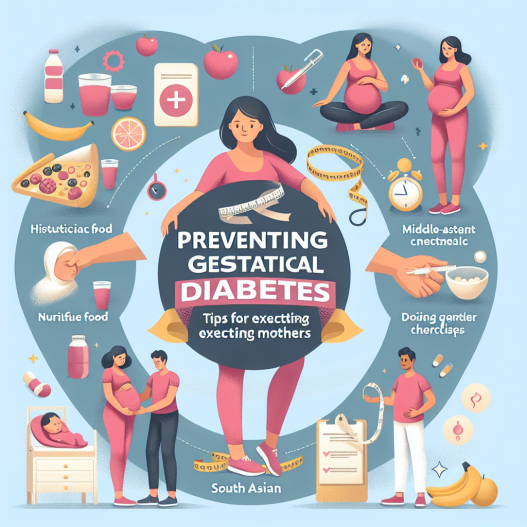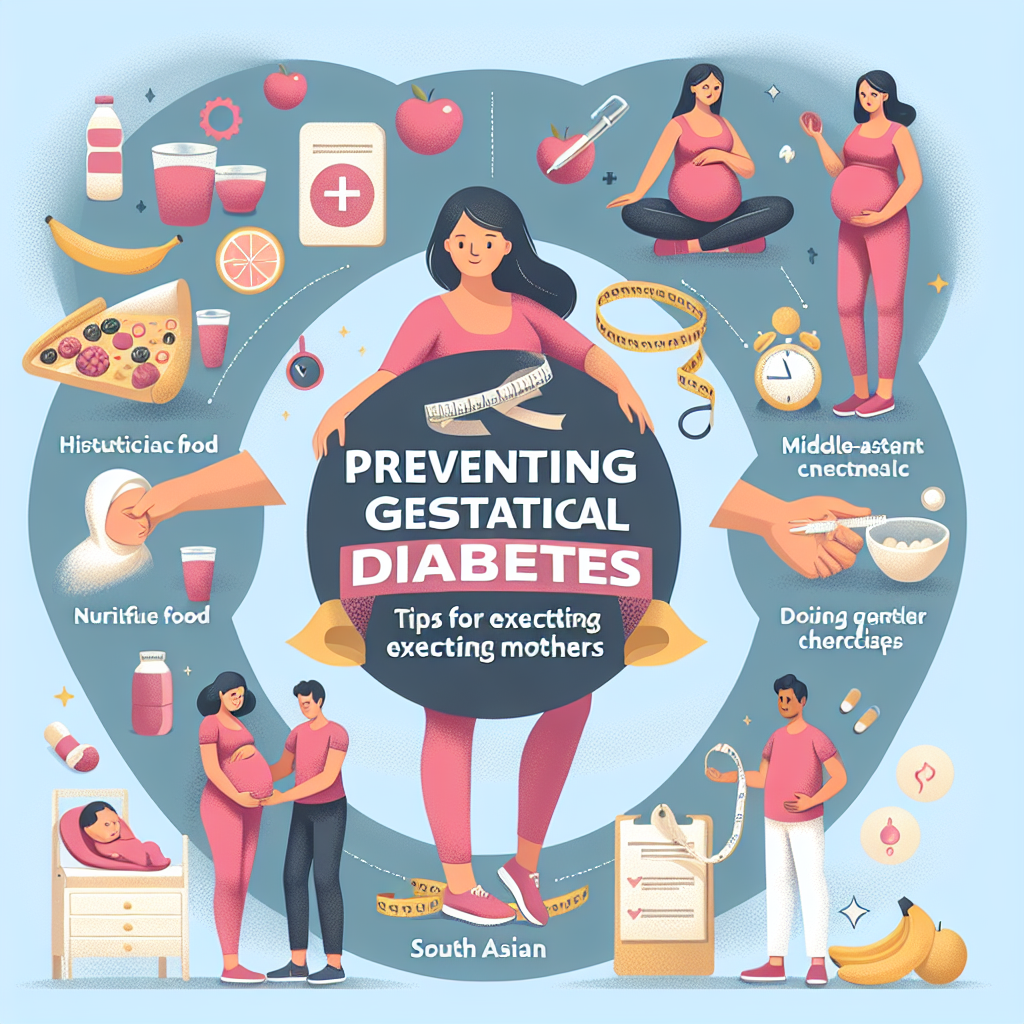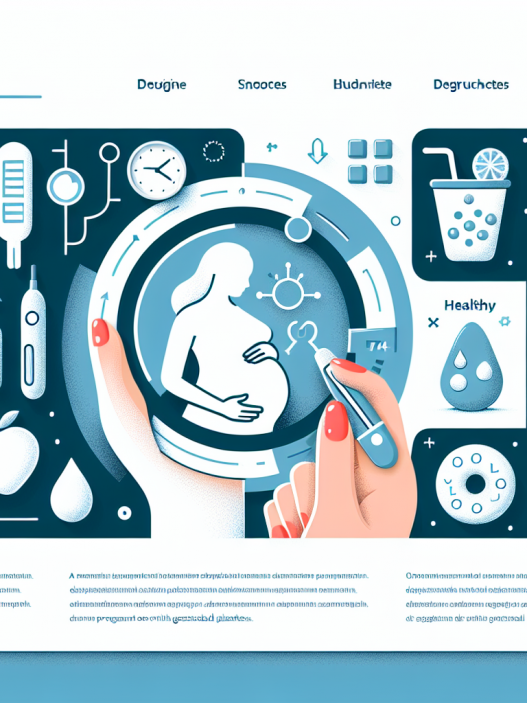[ad_1]
Preventing Gestational Diabetes: Tips for Expecting Mothers
Gestational diabetes is a condition that affects pregnant women, potentially leading to complications for both mother and baby. It is essential for expecting mothers to understand how to prevent this condition through proper lifestyle choices. In this blog, we will explore several tips to help you minimize the risk of gestational diabetes, ensuring a healthier pregnancy for both you and your child.
Understanding Gestational Diabetes: What You Need to Know
Gestational diabetes is a form of diabetes that occurs during pregnancy, generally around the 24th to 28th week. This condition arises when the body cannot produce enough insulin to meet the increased demands during pregnancy. Factors contributing to gestational diabetes can include obesity, a sedentary lifestyle, and a family history of diabetes. If not properly managed, this condition can lead to serious complications such as high birth weight, premature delivery, and an increased risk of developing type 2 diabetes later in life.
It’s crucial to recognize the symptoms of gestational diabetes, which can include increased thirst, frequent urination, fatigue, and blurred vision. However, many women may not experience noticeable symptoms, making it important to attend regular prenatal check-ups. Screening for gestational diabetes usually occurs through a glucose tolerance test, which can identify the condition early, allowing for effective management.
Maintaining a Balanced Diet: Your First Defense
A balanced diet is foundational in preventing gestational diabetes. Focus on consuming whole, unprocessed foods, incorporating plenty of fruits, vegetables, lean proteins, and whole grains into your daily meals. Eating a variety of foods ensures that you receive all the essential nutrients needed for both you and your growing baby. Monitor portion sizes to prevent overeating, and be mindful of your carbohydrate intake.
Incorporating healthy fats, such as those found in avocados, nuts, and olive oil, can help manage blood sugar levels. Try to avoid refined carbohydrates, such as white bread, pastries, and sugary drinks. Instead, opt for complex carbohydrates like whole grains that digest more slowly, minimizing spikes in blood sugar levels. Meal planning can be a useful strategy to help you make nutritious choices consistently.
The Importance of Regular Exercise: Staying Active During Pregnancy
Regular physical activity is instrumental in preventing gestational diabetes. Engaging in moderate exercise for at least 150 minutes each week can help regulate blood sugar levels and maintain a healthy weight. Before starting any new exercise program during pregnancy, it’s crucial to consult with your healthcare provider to determine what activities are safe for you.
Low-impact exercises such as walking, swimming, and prenatal yoga are excellent options for expecting mothers. These activities not only improve physical fitness but also contribute to emotional well-being by reducing stress and anxiety levels. Consistency is key—aim to engage in physical activities most days of the week.
Remember that exercise doesn’t have to be strenuous to be beneficial. Incorporating activity into your daily routine, such as taking the stairs instead of the elevator or walking rather than driving short distances, can also contribute to your overall health and help prevent gestational diabetes.
Managing Stress: The Hidden Factor in Diabetes Prevention
Stress management is often overlooked but is crucial in preventing gestational diabetes. High levels of stress can affect insulin sensitivity and disrupt blood sugar regulation. Pregnant women are encouraged to incorporate stress-reducing techniques into their daily lives. Practices such as mindfulness meditation, deep-breathing exercises, and prenatal massages can help alleviate anxiety and promote relaxation.
Finding a support system—whether through family, friends, or support groups—can also provide immense benefits. Sharing your experiences and concerns with others can reduce feelings of isolation and stress. Communicate openly with your healthcare provider about any emotional struggles you are facing, as they can offer additional resources or referrals.
Additionally, maintaining a well-structured daily routine can help minimize stress levels. Ensuring adequate sleep and planning for self-care activities will contribute to emotional stability and overall well-being during your pregnancy.
Regular Monitoring: Early Detection and Intervention
One of the most effective ways to prevent gestational diabetes is through regular monitoring and early intervention. Make sure to attend all scheduled prenatal appointments and discuss any concerns about blood sugar levels with your healthcare provider. If you have risk factors for gestational diabetes, such as a family history of diabetes or obesity, you may be screened earlier in your pregnancy.
Being proactive can involve keeping a food diary to track your diet and exercise habits. This not only helps in understanding what works best for your body but can also provide valuable insights during discussions with your healthcare team. If you do receive a diagnosis of gestational diabetes, don’t panic. There are numerous management strategies available to help control blood sugar levels, allowing you to maintain a healthy pregnancy.
Education is key. Learn about diabetes management and how dietary choices impact blood sugar levels. The more informed you are, the more effectively you can work with your healthcare provider to establish a safe and healthy pregnancy plan.
The Role of Healthcare Providers: Building a Support Network
Building a strong support network with healthcare providers is essential for preventing and managing gestational diabetes. Your primary care physician, obstetrician, registered dietitian, and diabetes educator can all work collaboratively to provide individualized care. Do not hesitate to ask questions, express concerns, and seek advice on best practices for preventing gestational diabetes.
Participating in prenatal education classes can be beneficial, as they offer valuable information on nutrition, exercise, and diabetic management. By being educated about what to expect during pregnancy and how to maintain optimal health, you feel more empowered and in control.
Additionally, if you face challenges, your healthcare team can create a tailored plan to address specific issues. Whether you require a detailed meal plan, blood sugar targets, or physical activity recommendations, having professionals guide you through the process can make a significant difference.
In conclusion, preventing gestational diabetes is a multi-faceted approach that combines nutrition, exercise, stress management, regular monitoring, and a strong support network from healthcare providers. By taking proactive steps, you can greatly reduce your risk and pave the way for a healthier pregnancy journey. Remember, a healthy mother means a healthy baby, so prioritize your health and well-being during this special time.
[ad_2]





















